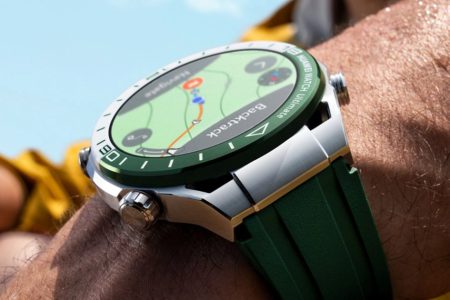Apple’s wearable devices, and specifically its smartwatches, are often deemed the default best. The ecosystem around the Apple Watch is often cited as the core convenience, but there’s no doubt that Apple deserves merit for health innovation and technical prowess, too.
It, therefore, comes as a surprise that a sanction-battered company with a far smaller presence in the West has managed to topple Apple and nab the crown of the world’s biggest wrist-worn device brand. The company in question is Huawei.
Actually, the Chinese electronics giant has managed to beat Apple for the second consecutive time this year, based on quarterly market data from IDC.
As per the research company’s latest Worldwide Wearables Quarterly Tracker report, between the first and third quarters of 2024, Huawei shipped more wearables than Apple, commanding a market share of 16.9% (23.6 million units shipped) compared to Apple’s 16.2% portion (22.5 million units shipped) on the global front.

Interestingly, compared to last year, Huawei’s market position has strengthened by a massive 44.3%, while Apple’s has witnessed a decline of 12.8% in the global markets. Notably, even Samsung has recorded growth, and so have other major Chinese brands, such as Xiaomi.
Huawei’s growth can also be attributed to the fact that China has emerged as the largest wearable market in the world, one where Huawei commands a strong presence. As per IDC’s tracker, Huawei was ahead of Apple in the second quarter as well, snagging one-fifth of the global market, compared to Apple’s 13.% share.
A dark horse of wearable innovation

It is worth keeping in mind that Apple still leads the smartwatch segment, while IDC’s report tracks a combination of fitness bands and smartwatches. Interestingly, Huawei doesn’t lag behind Apple in the smartwatch innovation game, either. It actually leads the game at numerous parameters.
Take, for example, the Huawei Watch D2, which enables Ambulatory Blood Pressure Monitoring. Instead of using a sensor stack that reads blood flow movement using light and requires calibration (hello, Samsung Galaxy Watch), Huawei’s TruSense system has fitted a high-precision pressure sensor, mini pump, and inflatable airbag in the strap.
The smartwatch can measure blood pressure levels at any time of the day and during activities like sleeping, walking, and more. Users can also customize it to take the readings at regular intervals, set up a 24-hour auto-monitoring plan, keep an eye on the average SBP and DBP (Systolic Blood Pressure and Diastolic Blood Pressure) numbers, combine them with heart rate insights, and more.
And here is the surprising part. Hauwei’s website clearly mentions that it can be “used as a reference in clinical practice.” In fact, the wearable portfolio is quite expansive, covering varied aesthetic styles and form factors across different price brackets and health stack levels. Or, as the saying goes, something for everyone.
Huawei’s health sensing and fitness tracking stack is also pretty impressive, and it also beats the likes of Samsung and Apple at offering fashionable smartwatches tailored to the female audience. However, the global market dynamics might change in Apple’s favor during the holiday season, but we’ll have to wait a few weeks for those figures to arrive.
